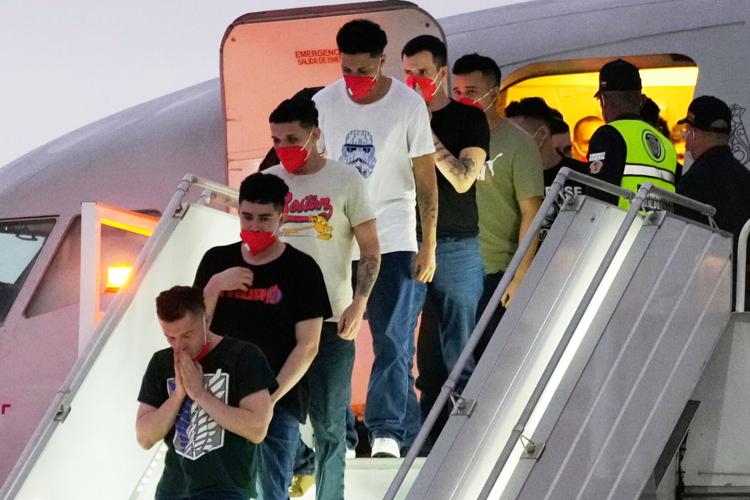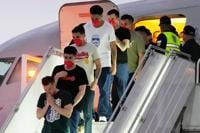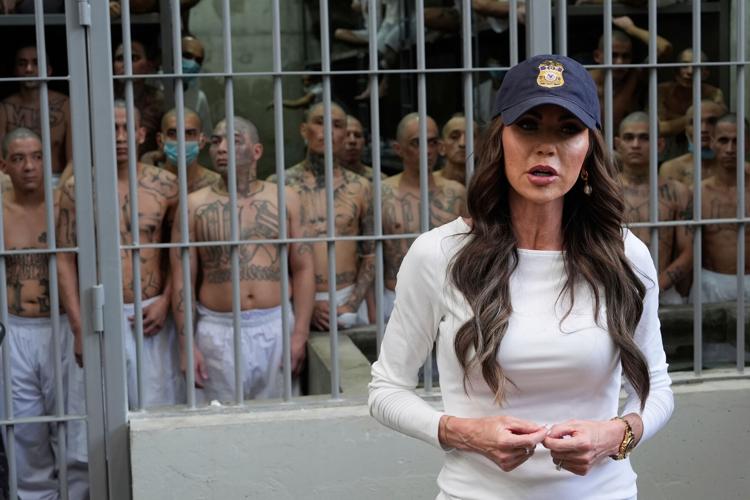A federal judge said Wednesday he plans to move ahead quickly on a contempt investigation of the Trump administration for failing to turn around planes carrying Venezuelan migrants to El Salvador in March.
U.S. District Judge James Boasberg in Washington said a ruling Friday by the U.S. Court of Appeals for the District of Columbia Circuit gave him the authority to proceed with the inquiry, which will determine whether there is sufficient evidence to refer the matter for prosecution. He asked attorneys to identify witnesses and offer plans for how to conduct the probe and said he'd like to start any hearings on December 1.
The judge has previously warned he could seek to have officials in the administration prosecuted.
On March 15, Boasberg ordered the aircraft carrying accused gang members to return to the U.S., but they landed instead in El Salvador, where the migrants were held at a notorious prison.
“I am authorized to proceed just as I intended to do in April seven months ago,” the judge said during a hearing Wednesday. He added later, “I certainly intend to find out what happened on that day.”
Boasberg said having witnesses testify under oath appeared to be the best way to conduct the contempt probe, but he also suggested the government could provide written declarations to explain who gave orders to “defy” his ruling.
The Trump administration has denied any violation, saying the judge’s directive to return the planes was made verbally in court but not included in his written order. U.S. Justice Department attorney Tiberius Davis told Boasberg the government objected to further contempt proceedings.
Boasberg previously found probable cause to hold the Trump administration in criminal contempt of court. The ruling marked a dramatic battle between the judicial and executive branches of government, but a divided three-judge appeals court panel later sided with the administration and threw out the finding. The two judges in the majority were appointed by President Donald Trump.
On Friday, a larger panel of judges on the D.C. Circuit said the earlier ruling by their colleagues did not bar Boasberg from moving ahead with his contempt probe. Boasberg’s contempt finding was a “measured and essential response,” Judges Cornelia Pillard, Robert Wilkins and Bradley Garcia wrote.
“Obedience to court orders is vital to the ability of the judiciary to fulfill its constitutionally appointed role,” they wrote. “Judicial orders are not suggestions; they are binding commands that the Executive Branch, no less than any other party, must obey.”
The Trump administration invoked an 18th century wartime law to send the migrants, whom it accused of membership in a Venezuelan gang, to a mega-prison in El Salvador known as the Terrorism Confinement Center, or CECOT. It argued that American courts could not order them freed.
In June, Boasberg ruled the Trump administration must give some of the migrants a chance to challenge their deportations, saying they hadn’t been able to formally contest the removals or allegations that they were members of Tren de Aragua.
The judge wrote that “significant evidence” had surfaced indicating that many of the migrants were not connected to the gang “and thus were languishing in a foreign prison on flimsy, even frivolous, accusations.”
More than 200 migrants were later released back to Venezuela in a prisoner swap with the U.S.
Their attorneys want Boasberg to issue another order requiring the administration to explain how it will give at least 137 of the men a chance to challenge their gang designation under the Alien Enemies Act.
The men are in danger in Venezuela and fear talking to attorneys, who have been able to contact about 30 of them, but they “overwhelmingly” want to pursue their cases, Lee Gelernt, an attorney with the American Civil Liberties Union, said Wednesday.
Davis said it may be hard to take the men into custody again given tensions between the U.S. and the government of Venezuelan President Nicolas Maduro.
Boasberg did not immediately rule on the matter.




